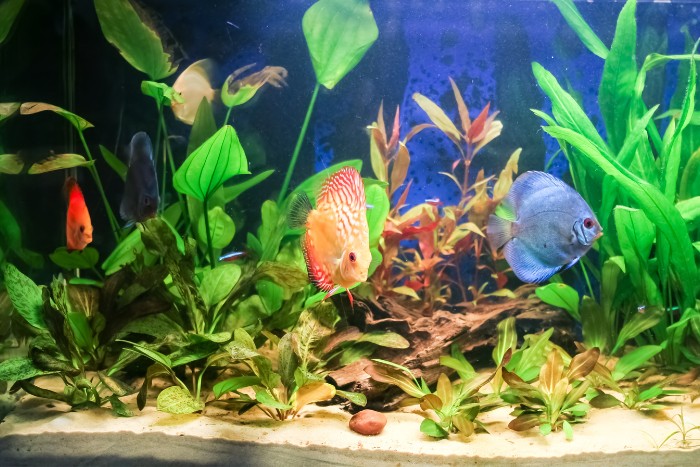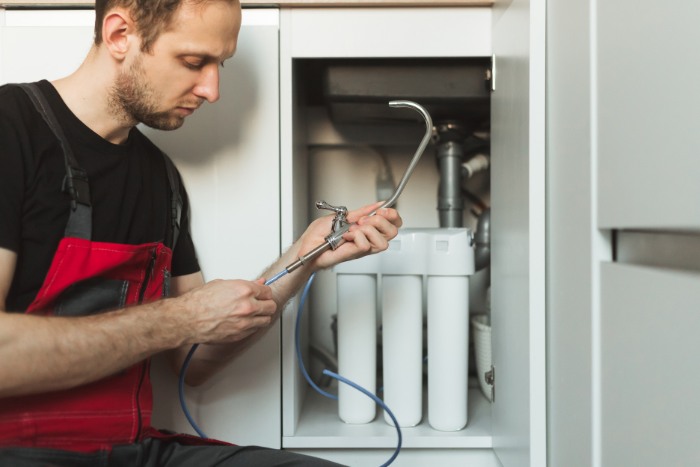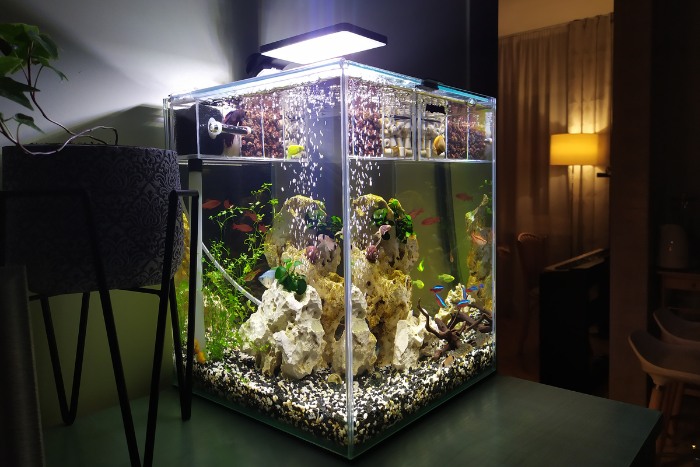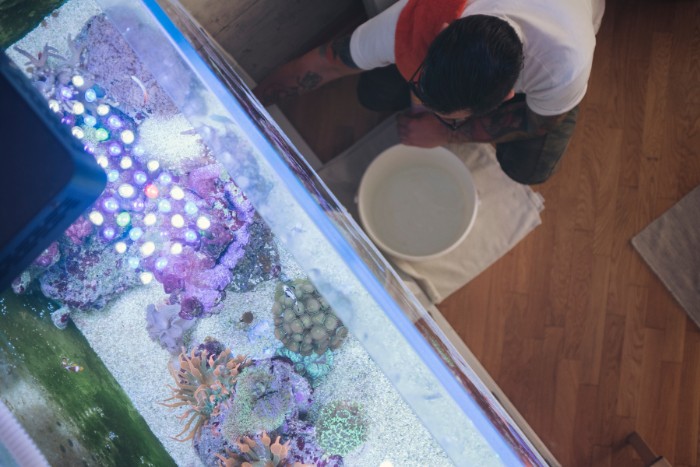
It’s crucial to understand how softened water can affect your aquarium’s water quality and your fish’s health if you have a water softener installed at home and want to maintain a freshwater fish tank. Here are key considerations and recommended approaches to help create a safe environment for freshwater fish.
Water Quality Concerns with Water Softeners

Water softeners typically remove calcium and magnesium ions and replace them with sodium ions, which can pose several challenges for freshwater aquariums:
- Mineral Imbalance: Softened water lacks essential minerals like calcium and magnesium that fish and plants require for healthy growth. Many freshwater fish thrive in environments with certain hardness levels (GH) and alkalinity (KH), which are reduced by water softening processes.
- Sodium Content: The increased sodium levels from water softening can be harmful to fish species that are sensitive to salt, especially those adapted to low-mineral environments.
- pH Instability: Softened water can affect pH stability in the tank, as many water softening processes also reduce the buffering capacity (KH), leading to sudden pH swings, which can stress your fish.
Recommended Approaches for Managing a Freshwater Aquarium

To ensure a healthy environment for your fish, you have several options depending on your water source and fish species:
- Use Water from an Untreated Source – Use water from a tap that bypasses the water softener, such as an outdoor spigot if possible. This helps maintain the natural mineral balance in the water, which is essential for the well-being of many fish species.
- Utilize or Install a Bypass Valve – A bypass valve on your water softener system can allow you to divert unsoftened water to your aquarium. This ensures your fish get untreated water, preserving the essential minerals they need for proper health.
- Remineralize Softened Water – If using softened water is your only option, you can remineralize the water by adding aquarium-specific mineral supplements. This restores the vital elements that were stripped away during the softening process, ensuring your fish have the proper levels of calcium and magnesium. Consult with your local pet store for the proper balance for your particular fish and aquarium.
- Consider Reverse Osmosis (RO) Water – For more precise control over your tank’s water chemistry, consider using a reverse osmosis (RO) system. This removes nearly all impurities and minerals, giving you full control to remineralize the water to match your fish’s needs. This method ensures the right balance of minerals and pH for species with particular requirements.
Monitoring and Maintenance

Regardless of the water source you choose, it’s essential to regularly monitor and maintain your tank’s water quality to prevent issues:
- Test Water Parameters Regularly: Make a habit of testing your tank water for pH, general hardness (GH), carbonate hardness (KH), and mineral content. This helps you ensure that water conditions remain stable and healthy for your fish.
- Gradual Water Changes: When changing the water in your aquarium, do it gradually to avoid shocking the fish with sudden shifts in water chemistry. This is especially important when using remineralized or untreated water.
- Research Fish-Specific Needs: Some fish species are more tolerant of softened or remineralized water than others. Research the specific requirements of your fish species to provide them with the best possible environment.
By understanding how water softeners affect aquarium water quality and choosing the right solution, you can successfully maintain a healthy freshwater fish tank at home. Whether using untreated water, adding mineral supplements, or using an RO system, creating a stable environment will ensure your fish thrive even with a water softener in the house.
Protect Your Aquarium and Your Home’s Water Quality!

If you’re worried about how your water softener might affect your freshwater fish tank, it’s time to take action. At Clear Water Concepts, we offer water treatment solutions that are great for your home and safe for your fish. Learn more about how our customized systems can help you maintain healthy water for your family and aquarium. Schedule your free consultation today!

